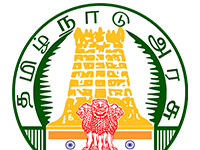
Clubbing of Income – Income Tax
Under the Income Tax Act a person has to pay taxes on his income. While computing the gross total income, if the income of any other person in a family is included, then its called Clubbing of Income. Section 64 of the Income Tax Act,1961 deals with clubbing of income. Clubbing of income ensures that taxpayers do not circumvent their tax liability by transferring their incomes and assets within the family. In this article, we look at provisions relating to clubbing of income in detail.
Click here to file income tax return online through IndiaFilings.
Clubbing of Income
As per Income Tax Act, every person has to pay taxes on his income. No person is allowed to divert his income to any the relatives to reduce tax liability. Clubbing of income means income of other person is included in the taxpayer’s total income while computing income tax payable.
Check out our Income Tax Calculator.
Reason for Clubbing Income
Many taxpayers in India have attempted to reduce their income tax liability by transferring their incomes and assets to their family members, in such a way that most of the income falls under the taxable amount. The clubbing of income regulations ensure that such practices are curbed.
Examples for Clubbing of Income
Clubbing of income is needed under following circumstance:
- Investing money in the form of fixed deposit in children name.
- Earning assets in the name of relatives (wife or child).
- Creating saving bank accounts for dependants.
- Mutual funds for child.
- Shares in the name of spouse / child.
- Post office savings for family members.Also, if you decided to transfer the ownership of an asset and the income from the asset to a dependant, it will continued to be added to your income under the clubbing of income provisions. Here is an example for better understanding:If a person purchasing a flat in the name of one of his family member and that person let out this flat, the rental income earned by the person in name of his family member is taxable. As per section 64 of Income Tax, the income would be clubbed with person purchasing the flat.
Clubbing of Income Rules
Clubbing of income relates to income from investments made on behalf of a spouse, minor child, spouse or daughter-in-law. These incomes are integrated together and taxed on the overall income. The following are some of the major rules relating to clubbing of income:
Transfer of income without transfer of asset
When a person retaining the ownership of an asset but transfers the income from the asset to any of his relatives by an agreement or any other way. – As per Section 64 of Income Tax Act, such income will be taxable in the hands of the transferor.
Let have a look at this example of income transfer.
Assume that person “A” owns 10000, 50% debentures of XYZ private limited of Rs. 500 each. But he is transferring the interest income to his family member “B” without transferring the ownership of Debentures. In this case, although interest will be received by a family member, it is taxable in the hands of “A”.
Revocable transfer of asset
If an asset is transferred under a revocable transfer, income from such asset is taxable in the hands of the transferor.
For example, if a person “M” transfers his house to one of his friend N. And, M has right to revoke the transfer during the lifetime of N, then the income arising from the house property will be taxable in the hands of M.
Clubbing of Spouse Income
Clubbing of spouse income is the most common under Section 64 of the Income Tax Act. The following are some of the major aspects of clubbing of spouse income:
Remuneration to Spouse
A person’s income is to be clubbed with spouse’s income if any payment is received from the spouse through the following methods:
- Salary or remuneration paid to spouse directly.
- Wage or remuneration or commission paid to spouse from a concern in which the assessee has a substantial interest.
For example, if Mithun has a substantial interest in a Company and his wife Anila is working in the company and she is not in any technical or professional qualification. – In this case, the salary income of Anila will be taxable in the hands of her husband Mithun.
The key criteria is the technical or professional qualification of the spouse. Hence, clubbing of income would not be applicable, if the spouse possesses technical or professional qualification and income of the spouse is related with such technical or professional knowledge.
Income from assets transferred to spouse
If an asset is transferred by a Person to his spouse directly or indirectly, any income from such asset will be considered as income of the transferor. However, the transfer must not be in connection with an agreement of divorce settlement or with adequate consideration.
For example, if a flat is transferred by Arun to his wife Divya. Rental income on the flat will be considered as income of Arun. However, clubbing of income provisions will not be applicable if the transfer of the asset is made through an agreement of divorce or settlement or to live apart.
Income from Minor Child
Any income of the minor child is to clubbed with the parent whose income is higher.
The parent with whom the income is clubbed will be allowed an income tax deduction of Rs.1500 per minor child. Under section 80U of Income Tax Act, clubbing is not to be done when income arises from manual work or application of his skill or specialized knowledge and experience of the minor child suffering from any disability.
Know more about clubbing income of minor.
Finally, clubbing of income is applicable if a person transferred an asset without adequate consideration to son’s wife or daughter-in-law. Any income from such an asset would be considered as income of the transferor.






























